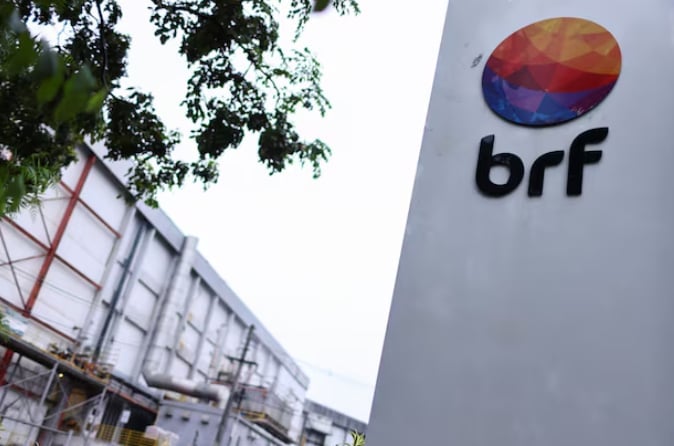November 24, 2025 | 10:52 GMT +7
November 24, 2025 | 10:52 GMT +7
Hotline: 0913.378.918
November 24, 2025 | 10:52 GMT +7
Hotline: 0913.378.918

A logo is seen in front of a unit of BRF S.A., a food producing industry, in the city of Lajeado, Rio Grande do Sul, Brazil, March 27, 2025. REUTERS/Diego Vara/File Photo Purchase Licensing Rights.
The company, which also processes pork and prepared food products, said earnings before interest, taxes, depreciation and amortization, a measure of operating income known as EBITDA, was 2.5 billion reais in the period, in line with the average of analysts' forecasts.
Sales totaled 15.36 billion reais, a 2.9% annual rise, BRF said.
Citing official trade data, BRF executives said the bird flu outbreak caused Brazilian poultry exports to fall 15% in the quarter while the company's own poultry exports dropped 5%, indicating it was able to weather the storm.
At a press conference, executives noted BRF redirected some chicken products to the domestic market, or found alternative destinations for certain cuts after multiple bird flu-related trade embargoes.
China, a key export destination, remains closed for Brazilian poultry products after the outbreak, which the government has controlled.
However, BRF executives told reporters that Saudi Arabia would resume buying from Brazil, citing official government communications.
Sales volume grew about 6% in BRF's home market, driven by processed food, which scored a record high for the company's second quarter. BRF's Brazil EBITDA reached 1.3 billion reais, and margins were a healthy 16.4%, BRF said.
BRF said it was able to maintain "competitive pricing levels " in international markets. The company recorded adjusted EBITDA of 1.2 billion reais and a margin of 17.3% for the business.
In the second quarter, BRF said it obtained 11 new export authorizations, highlighting key markets such as Argentina and Canada.
BRF said the company had the best half-year in history, referring to results between January and June, with EBITDA of 5.3 billion reais and net profit of 1.9 billion reais in the period.
(Reuters)

(VAN) More than 100 shoppers queued for a chance to get a kilo or so of Japanese rice for 500 yen ($3.32) by heaping as much grain into a small wooden box as possible.

(VAN) Benchmark international prices of milled declined in October as harvests started or improved in some parts of the globe.

(VAN) Show cause orders will be issued to retailers who sell imported rice at prices exceeding the maximum suggested retail price (MSRP) of P43 per kilo, Philippines Agriculture Secretary said in a statement on Thursday.

(VAN) Coffee prices on October 20, 2025, remained stable domestically, trading at 113,500–114,500 VND/kg. Similarly, global coffee prices also moved sideways.

(VAN) By October, Vietnam’s coffee exports had surpassed USD 7 billion for the first time and will exceed USD 8 billion within this year.

(VAN) Illinois rancher says Texas, Oklahoma, Kansas lost grass and forage, forcing massive cattle liquidation.

(VAN) Coffee prices on October 12, 2025, remained flat, trading at VND 113,000–VND 114,000/kg. This week, coffee prices continued to decline sharply.